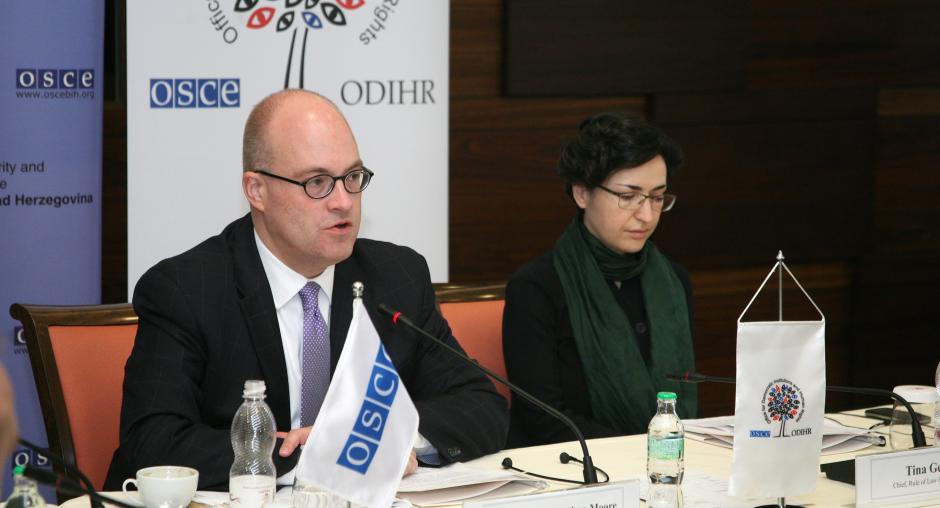OSCE/ODIHR gathers war crimes investigators at regional meeting in Sarajevo

A meeting for war crimes investigators in South-Eastern Europe organized by the OSCE Office for Democratic Institutions and Human Rights (ODIHR) and supported by the OSCE Mission to Bosnia and Herzegovina on 25 May 2015 in Sarajevo provided an opportunity for investigators to exchange experiences and discuss issues such as the structural set-up of investigation units, the relationship between investigators and prosecutors, and cross-border co-operation where suspects are located in other countries in the region.
“Justice for the victims and survivors is overdue. It is essential for justice to be done in war crimes cases so many years after the crimes were committed,” said Ambassador Jonathan Moore, Head of the OSCE Mission to Bosnia and Herzegovina. “To this end, the OSCE Mission to Bosnia and Herzegovina will continue to support and advocate for fair and effective adjudication of war crimes cases at the domestic level.”
“Investigative work is the basis for effective war crimes prosecution”, said Tina Gewis, Chief of ODIHR’s Rule of Law Unit. “It is imperative that investigators be provided with every opportunity to reinforce their professional ties at the regional level.”
The meeting gathered 13 war crimes investigators from Bosnia and Herzegovina, Croatia and Serbia. War crimes investigators from Kosovo* also attended this meeting, which was supported by investigators from Finland and the United Kingdom.
“To expedite regional investigative efforts we must also strengthen domestic structures by ensuring a more efficient allocation of police resources,” said Mario Kapetanović, Deputy Chief of the Bosnia and Herzegovina War Crimes Investigation Centre. “We should also learn from other countries by enhancing cross-border co-operation.”
The peer-to-peer meeting for war crimes investigators represents the last activity of OSCE/ODIHR’s War Crimes Justice Project II. Since July 2012, this project has supported professionals handling war crimes cases in South-Eastern Europe through training, meetings and a regional conference on the role of domestic jurisdictions in implementing international humanitarian and criminal law standards.
* This designation is without prejudice to positions on status, and is in line with UNSCR 1244/99 and the ICJ Opinion on the Kosovo declaration of independence.
